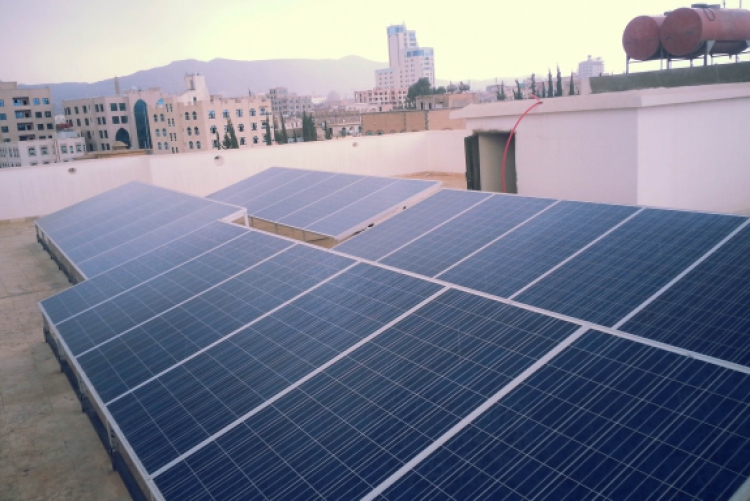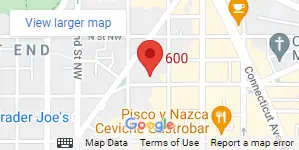Amideast’s solar power system complements an already-existing rainwater harvesting system, developed by former Amideast/Yemen Country Director Sabrina Faber as part of her Rainwater Aggregations (RAINS) Project, which won the 2010/2011 Philips Livable Cities Award. The system has created the cleanest, quietest, and most sustainable learning environment possible for exchange students, EL students, and international test takers. Now, individuals interested in learning English, taking the TOEFL© Test, and applying to international, Amideast-administered scholarships can do so carbon free!
Asrar Al-Tawili, an alumna of the U.S. Department of State’s YES Program and an Amideast intern, notes: “Switching to solar paneling has made life much easier for Amideast, as we no longer have to deal with petrol or fuel issues. It is healthier for the environment as we do not pollute from the generator anymore and is a good way of introducing modern technology to Yemen.” Adanan Aboras, another intern, adds that, “Solar panels are important in Yemen; the power situation is difficult in Yemen. The solar panels do not harm the environment, which is great. Additionally, the solar panels only have the initial start-up cost, but after that, they are free. Overall, I think the solar panels are a great idea.”
Amideast students also see the benefits. As Muneer Abdo states, “Solar panels provide free electricity that lasts the whole day and do not pollute or provide noise. The only thing needed is space for the panels on the roof and for the batteries. I think it is a good idea for Amideast to switch to solar panels as it will help to decrease pollution and eliminate power cuts during exams and other activities. It is the best thing for saving the environment.”
Amideast (www.amideast.org) is committed to being an innovative, educational organization that works to develop Yemen’s human capacity. Amideast partnered with Sehab Tech, a green technology company based in Yemen, to make this innovation a reality. Interested individuals and organizations may contact Amideast Sanaa to tour the solar system and learn how they might implement similar systems in their homes and offices. Questions? Email us at sanaa@amideast.org or call 01-400-279 Ext. 204.


